|
East End Lane
Minster on Sea (Sheppey)
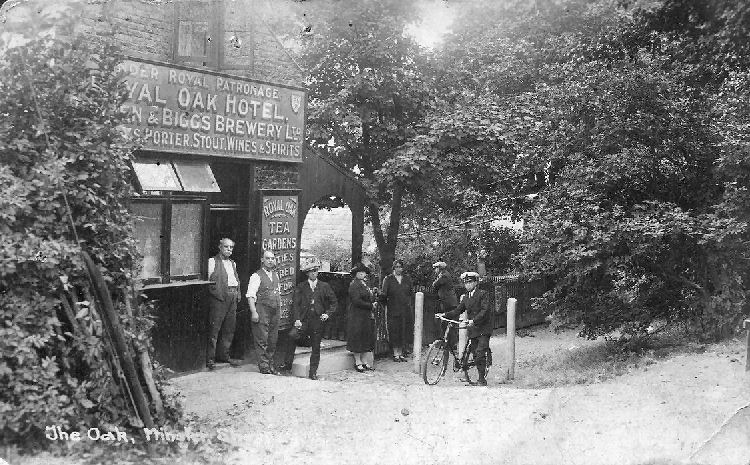
Above postcard, date 1910, kindly sent by Mark Jennings. |
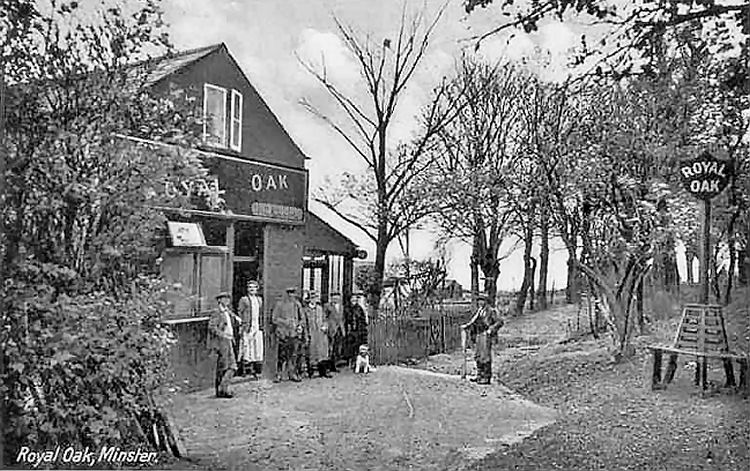
Above photo, circa 1910. back in the 1840s it boasted its own playing
fields on the seaward side upon which the cliff falls have taken their
toll. |
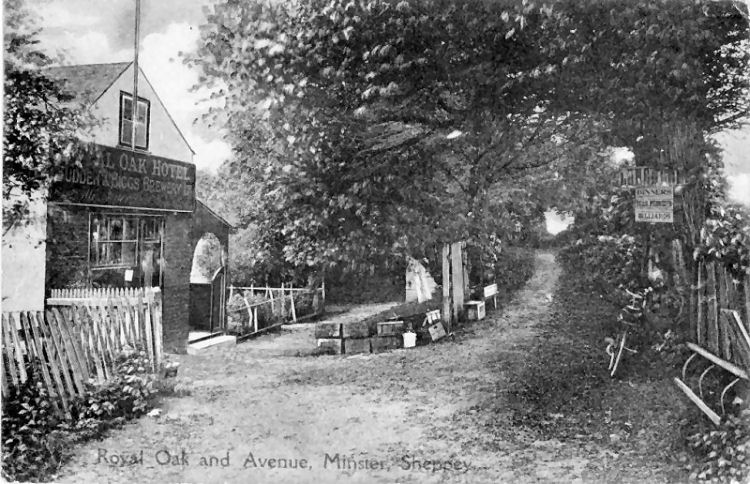
Above postcard, date unknown, from Trevor Edwards.
http://www.pbase.com/luckytrev |
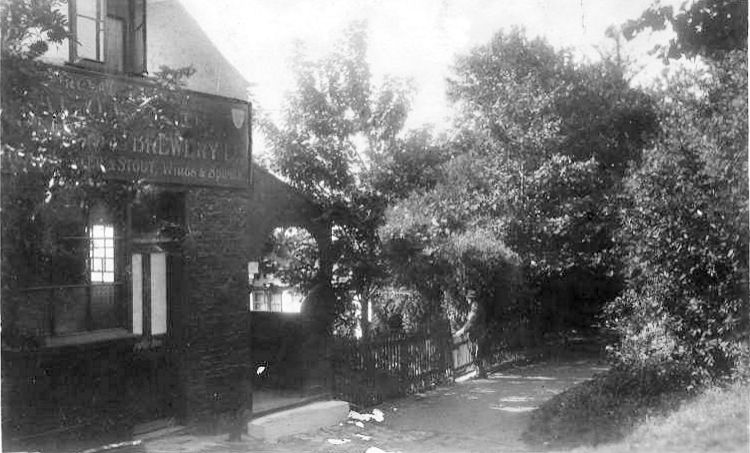
Above postcard, date unknown. |
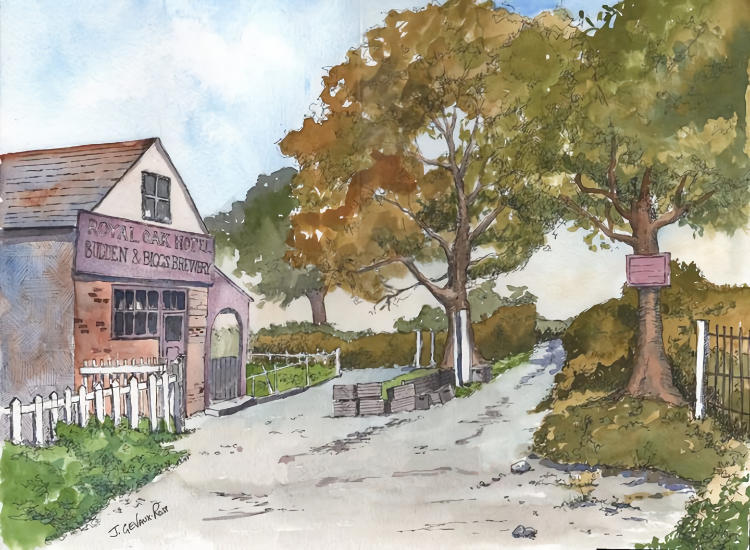
Above painting by J. Gevaux-Ross, date unknown. Probably copied from
above postcard. |
 Above postcard, date unknown, from Trevor Edwards.
http://www.pbase.com/luckytrev |
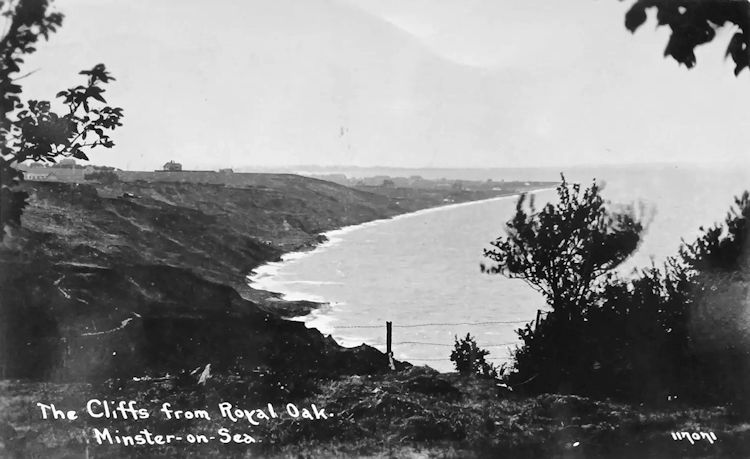
These cliffs, adjacent to the "Royal Oak," were to become famous (for
all the wrong reasons) on 27th July 1938 as the hide-out for the
Wimbledon murderer, George Brain. On 14th July, Brain had stabbed and
robbed Rose Atkins (of a mere 4/- or 20p) and left her body by the
roadside, as if to suggest she'd been the victim of a hit-and-run
incident. Going on the run, Brain holed up in caves near to the "Royal
Oak," whilst police scoured the country for him. A tip-off from a member
of the public led police to the caves and realising the futility of
resisting arrest, Brain came quietly. Although Brain pleaded Not Guilty,
it took an Old Bailey jury just 15 minutes to return a Guilty verdict
and he was sentenced to death. On 1st November 1938, Brain was hanged at
Wandsworth Prison by Thomas Pierrepoint. Kindly supplied by Rory Kehoe. |
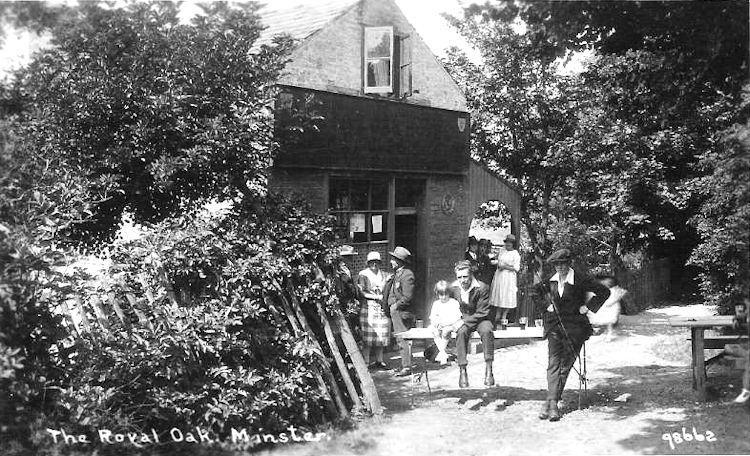
Above postcard, dated 1952. |
An old farmhouse at East End, Sheppey, became the "Royal Oak," a
smugglers inn, during the nineteenth century, when it was a mile from the
sea.
Ind Coope & Co Ltd purchased the pub from Budden & Biggs Brewery Ltd by
conveyance and assignment dated 23 March 1931. The pub held a full license.
Erosion brought pub and cliff closer together, so that by the 1950s the
premises were closed for safety reasons. Or, as a notice outside the
building put it: ‘Sorry, this ain't a pub no more'. The "Royal Oak"
disappeared over the cliff soon after.
There is a story going about that a local football match whilst the teams
were taking refreshment inside the pub at half-time that half of the
football pitch disappeared into the sea. Lucky escape I would say, although
I think perhaps this story has been enhanced just a little.
|
From the Kentish Gazette, 14 January 1845.
Appalling and Fatal Accident.
A most appalling accident happened on Saturday morning se’nnight to
a man of the name of Bourne, wagoner to Mr. Thomas Bigg, farmer,
Eastchurch, Sheppy, but as no one was present to witness it, much
must remain in obscurity. It is the practice of the farmers in
Sheppy to send their corn to Sheerness on Saturdays, to be shipped
for the London market, and this man and his mate were sent with a
wagon load of corn to Sheerness early on Saturday morning, and when
the wagon had reached the foot of the hill between Eastchurch and
Minster, on the Minster side, the poor fellow was found between the
near hind wheel and the body of the wagon in a dreadfully mangled
and mutilated state. It appears that Mrs. Bigg, of the "Royal Oak"
public-house, Minster, was going the same way with a loaded wagon,
and seeing a team proceeding along the road without a driver, told
her man to go and stop it, and when the man went round to the near
side, be found the wagoner as above described. On looking about and
tracing the blood, Mrs. Bigg found the poor man’s hat about half way
up the hill. Assistance was immediately obtained and the poor fellow
extricated, but he was quite dead, his body being so dreadfully torn
and mangled that his bowels came out, and it was with the greatest
difficulty that he could be moved; the body was ultimately taken to
the union workhouse. The mate was gone on to the blacksmith’s shop
in the village of Minster, with some work, which accounted for the
wagoner being alone; and it is conjectured that he was removing the
skidpan from the wheel before the wagon reached the bottom of the
hill, and that the wagon must have gone on, and that, by some means
or other, the deceased must have got entangled in the wheel and
carried round by it. When the team was stopped the skidpan was
dragging on the ground; but yet, as the deceased was found so far up
the hill, it is difficult to imagine that he should be removing the
skidpan there. Deceased was a steady man, being, as we understand, a
member of the Wesleyan society. He has left a wife and four
children. |
An email sent to me on 1 August 2021 from Jimmy Wright, with some photos,
seems to indicate that the original pub was destroyed by fire on the 24th
November 1892, although to date I haven't seen reference to this. It seems
that Jimmy has acquired this and that the licensee in the 1920s is his
namesake, although relationship as yet also unknown.
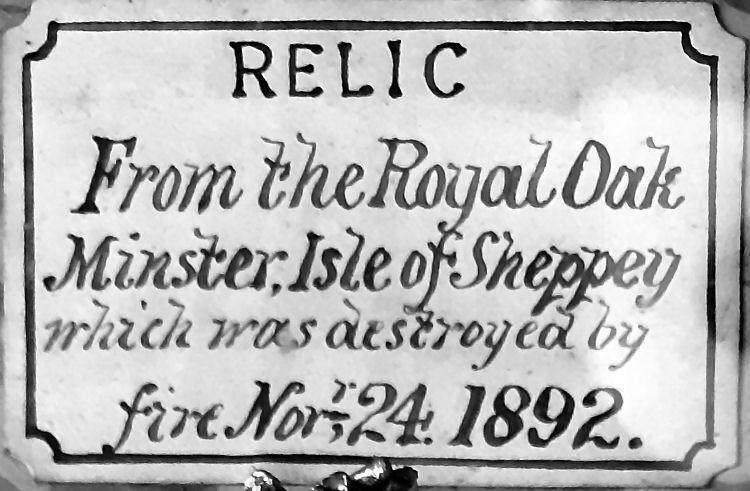
Above photo showing the sign inside the case. |
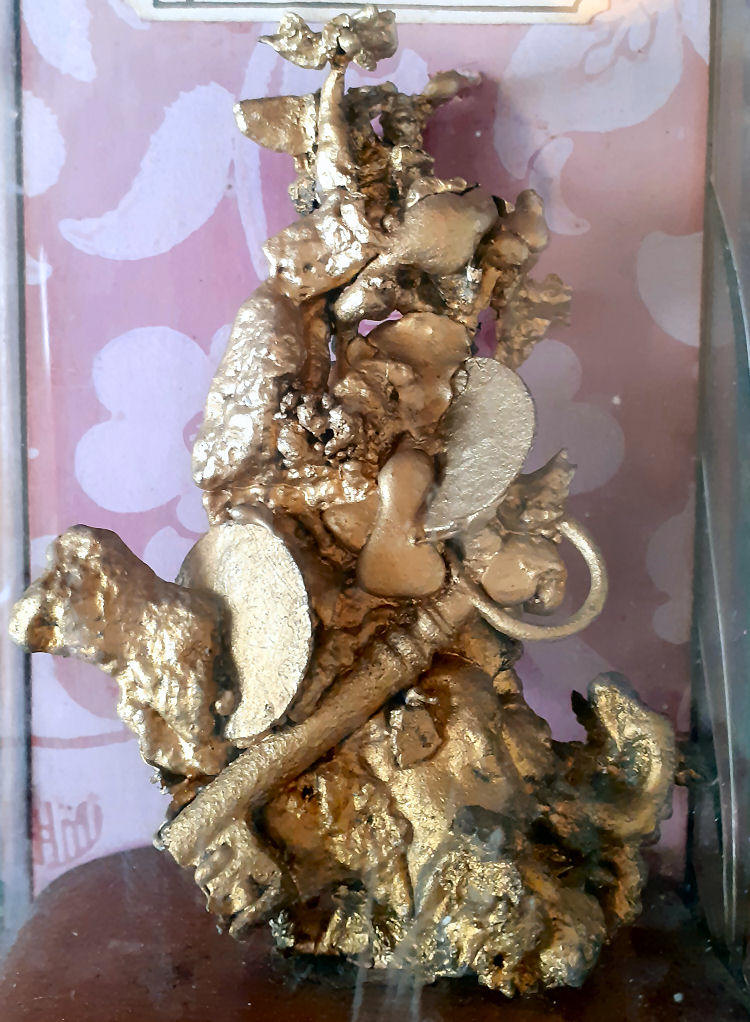
Above close up showing the fire relic. |
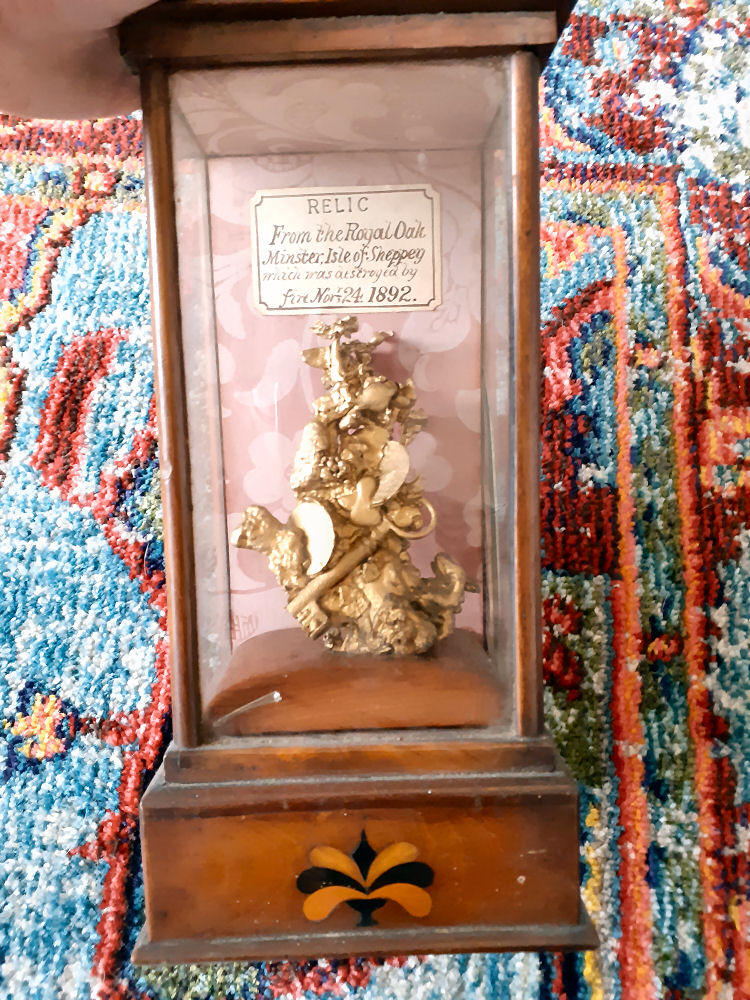
Above photo showing the case holding the relic. |
LICENSEE LIST
STAINES John 1851+ (age 44 in 1851 ) )
SHERLOCK William 1858+
LOGAN James 1861-62+ (& Pleasure Gardens widow age 56 in 1861 ) )
LOGAN Thomas 1874+ (& Pleasure Gardens)
GOULD Joseph 1881-82+ (age 34 in 1881 ) )
JOHNSON George Marshal 1896+
WORMALD Thomas 1903+

WORMALD John 1911-13+ (age 42 in 1911 ) )
WRIGHT James 1922-30+
WHITE Walter 1938+
https://pubwiki.co.uk/RoyalOak.shtml
 From the Kelly's Directory 1903 From the Kelly's Directory 1903
 Census Census
|










